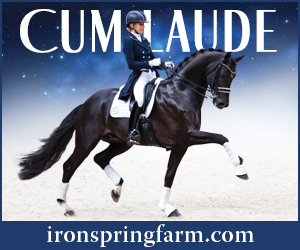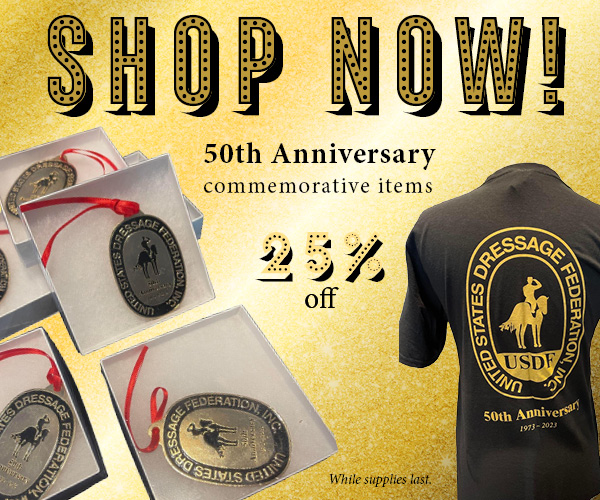Do you need a trainer? Perhaps—but as one amateur rider discovers, too much hand-holding can be counterproductive
Reprinted from the May 2014 Issue of USDF Connection
By Wendy Luscombe
After I retired from my job as a business executive, I started my own business and moved from New York City to the country. At last I had more time to ride.
I was the only adult rider at my barn who would go on trail rides, and none of the other adults would ride outside without help from the trainer or an assistant. Some would not get on a horse at all without a trainer present. I felt totally dependent on my trainer and had zero confidence in my riding.
During a meeting to discuss the barn’s annual show schedule, my trainer announced that another client was trying to qualify for a championship competition, and therefore we would go only to shows that offered her class. This meant passing up a show closer to home in favor of one that was much further away. I declined, and I was also informed that none of the assistant trainers could come with me to the nearer show. My trainer said, “If you want to go to that show so badly, why don’t you go by yourself?” So I did.
I got to the show grounds, rode my first horse, and he was like a rock. My youngster, however, was not! I was very nervous about whether I would be able to stay on the next day.
Well, the first day’s showing was super, and the second day was the same. I was high-score champion on one horse, and the other earned the highest score I’d ever gotten on him. I felt a sense of tremendous self-confidence and vindication. The chains had disappeared. I was free to show where I wanted, and yes, I could ride and ride well without a trainer! Within a month, I had left that barn.
That show season, I won more championships than ever before—but most exciting was that the enjoyment had come back to the sport for me.
Last winter, I found myself having to work my horses on my own. I was confident that I could keep them going fine, but unfortunately I had a simple fall while riding bareback indoors. Thanks to a bone disease that leaves me vulnerable to fractures, I broke six vertebrae and sustained other injuries as well. No riding for 10 weeks, I was told.
Instead of dissolving into a helpless mass as I would have in the past, I thought about what I could do. I decided to keep the horses going by lungeing. My horses were trained to lunge, but I had never really used lungeing as a training tool.
I began to realize what a super tool lungeing is. I found myself using my voice and praising my horses more. Why did it take me so long to realize that horses appreciate praise? I used ground poles to improve the horses’ balance; I did little jumps on the lunge and varied the work as much as possible. I even started to feel like a trainer!
The day I gritted my teeth, took the plunge, and went off by myself to that show was probably the best thing I could have done for my riding—and myself. It gave me the tools to be able to handle the problems life throws at us, and it enabled me to love riding again. It also taught me that the best trainers never want us to be dependent on them.
Wendy Luscombe, of Craryville, NY, has been involved with horses for nearly 50 years. In her native England, she was one of her country’s most successful Arabian breeders. She immigrated to the US in 1981, and for many years Lendon Gray and her students competed Wendy’s horses. Today Wendy rides and competes Norwegian Fjords, and they have amassed multiple Regional Championship titles at all levels, All-Breeds awards, and other honors.
















Isn’t it lovely when we can figure out how to trust our instincts! So glad you overcame your fear. 🙂